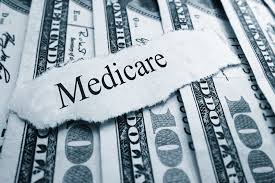The same time it was announced that Social Security recipients won’t receive any increases in their benefits, the government announced that certain Medicare participants would be paying dramatically higher premiums for Medicare Part B, the highest price jump in the program’s history. In general, the higher premiums will affect 30% of 2016 Medicare beneficiaries – roughly 7 million Americans:
-new Medicare enrollees in 2016
-Medicare enrollees who don’t yet collect Social Security checks
-Medicare enrollees with incomes above $85,000 (single) or $170,000 (married)
-dual Medicare-Medicaid beneficiaries
Medicare recipients who are not taking Social Security checks, who fall below the income thresholds, will see their monthly premiums go up from $104.90 to $159.30. Those whose income is above the threshold could see increases of $223 a month (up to $509.80 a month) for individuals whose family income exceeds $428,000 a year.
So this year will see some retirees make out better than expected on their Medicare costs, while others will lose big. There are proposals in Congress to fix this situation, but you shouldn’t expect any big reform in an election year. Should you take matters into your own hands and start collecting Social Security benefits—putting you in the protected class of Medicare recipients? Probably not. First, for those under age 70, it means locking in lower Social Security benefits. And second, if your income is above the $85,000 (single)/$170,000 (joint) thresholds, you will pay higher premiums anyway.

“My own life-changing transition inspired me to start Inspired Financial so that I could help other women and their families navigate their difficult life transitions and emerge confident, financially secure and empowered to deal with future life events.”


